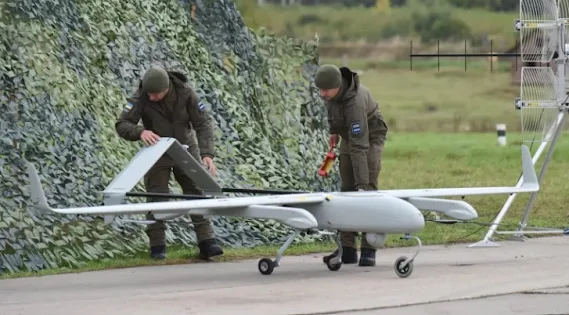 |
| Even Though Both Use Unmanned Systems, Why Did Drones Russian Lose to Ukraine? |
International Military - The battle between Russia and Ukraine has been running for more than 5 months and has not found a bright spot. Russia's special military operations into its neighboring country are pushing unmanned systems (drones) at the forefront of combat. That said, the war going on right now is the biggest one where the military uses an unmanned system.
Previously, drones were considered to be slow and not capable enough to give a military victory over its capabilities. But this time it's a different story, for example, the Turkish-made Bayraktar TB2 drone that managed to destroy Russian tanks and ships. Even TB2 also helped sink one of Russia's most iconic warships, the Moskva, quoted from The Guardian.
Although Russia has more than 10 years of experience operating a drone, it has proved inefficient in its battles with Ukraine. While on the Ukrainian side, their military managed to operate the drones as best they could, even repelling Russian attacks on several occasions.
And how to explain this inequality? Quoted from Defense View which judges there are two factors.
1. Less advanced technology
It will be difficult for Russia to outperform NATO-made radios and sensors on drones used by Ukraine. The drones used by Ukraine are known to be vulnerable to electronic anti-drone systems.
Basically, Ukraine can win the drone war because their platform embraces newer technology. That's not to say Russian drones don't have resistance to electronic attacks, they do. They have honed such tactics in operations in Syria as well as in Ukraine.
Russia uses its drones to detect radio signals from enemies, listen to opponents, or find their location to fire on. But due to the unsophisticated factor, Russia has adjusted its electronic warfare forces over the last 20 years and they have been largely ineffective, the Russian military has even resorted to shooting down a Ukrainian drone using missiles which cost much more.
2. Russia's drone operation is different from that of Ukraine
The second reason why Russia lost the drone battle is how they operate the drones. Russian drones are still completely manual, for example the Orlan-10 is a reconnaissance drone to detect enemy weapons and locations.
When working, this drone uses an extended antenna to detect or interfere with enemy signal transmissions. Because of this, Russian drone operations require high-quality, uninterrupted long-range communications. Because they still rely on signals such as radio, Russian drones are vulnerable to sabotage of Ukrainian anti-drone systems.
Ukraine operates fully automated drones, for example the Switchblade suicide drone which can fly along pre-planned routes and find potential targets on their own. While it takes time to "establish" a flight route, drones like this do not need a communication signal to launch an attack.
The Switchblade drone automatically searches for Russian tanks and artillery at short range and then initiates the attack. Ukraine reduces the quality and quantity of radio communications required on their drones, thereby automatically reducing vulnerabilities to anti-drone systems.
